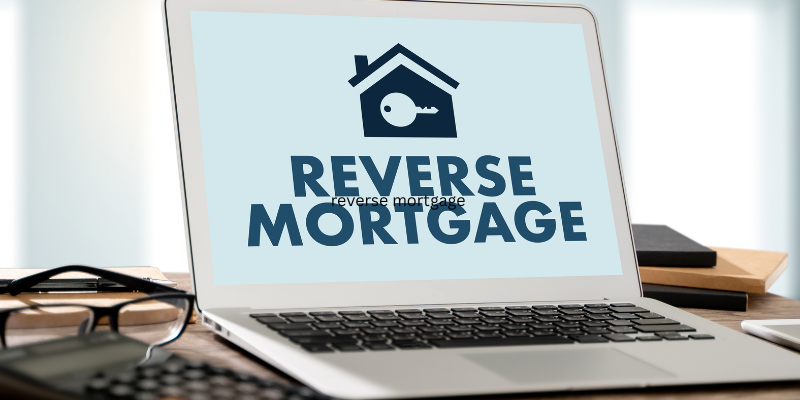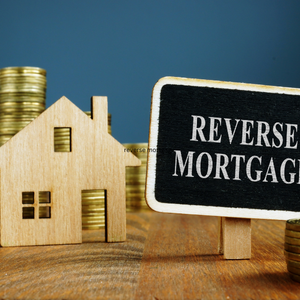
Understanding Reverse Mortgages and Their Impact on Selling Your Home
Reverse mortgages provide individuals aged 62 or older a means to monetize a portion of their home’s equity by receiving cash while retaining residence in the property. Selling an Anchorage home subject to a reverse mortgage, therefore, requires an informed approach to integrating the mortgage’s terms with the sale transaction.
Although the homeowner retains title and occupies the residence, the reverse mortgage requires that the loan balance—the sum of drawn equity plus accrued interest and fees—be satisfied at the closing of the sale. Such repayment customarily occurs from the cash generated by the transaction, enabling a straightforward transfer when proper documentation and timing are coordinated.
Sellers should note that any net proceeds from the sale, following the loan reimbursement, remain the borrower’s equity; capturing this gain requires timely valuation and leveraging the property’s maximum market appeal. With advanced awareness of how loan amortization affects final balances, homeowners can refrain from costly delays by structuring disclosures to prospective buyers and their agents.
Further, the homeowner is well-served to appraise the loan’s effective cost of capital, any origination charges incurred at closing, and the compounding penalty fees. Interest fluctuates with prevailing indices, thereby potentially swaying overall transaction dynamics. Such detailed modeling allows sellers to determine whether current market conditions render an optimal timing and to prepare for the liquidity event with sufficient margin for expenses beyond debt settlement. Anchorage Home Buyers can provide guidance and solutions to help homeowners navigate these financial considerations with confidence.
Navigating the Legal Requirements of Reverse Mortgages in Alaska

Selling an Anchorage home encumbered by a reverse mortgage necessitates a precise awareness of Alaska’s regulatory landscape, as a transaction conducted without full legal comprehension can encounter costly delays. Federal rules governing Home Equity Conversion Mortgages (HECM) intersect with state provisions, mandating a thorough evaluation of both jurisdictions.
Alaskan homeowners are obliged to conform with HECM stipulations as well as supplementary statutory requisites. Confirmation that the reverse mortgage originator completes requisite protocols—such as delivering comprehensive and understandable disclosures, and adhering to origination and servicing obligations—serves to mitigate future challenges.
Prior to marketing the residence, obtain the counsel of a real estate attorney with demonstrable expertise in both Alaska’s property statutes and reverse mortgage transactions. Such counsel will assist in illuminating subordinate liens, title encumbrances, or potential contractual pitfalls, assuring that closing documents and disclosures are effectively executed. This due diligence pairs well with understanding tenant damage and property rights, as both areas of knowledge help protect homeowners from unexpected legal or financial setbacks.
Engagement of a real estate professional who possesses in-depth knowledge of Anchorage’s current market and of properties encumbered by reverse mortgages can effectively synchronize compliance with legal stipulations and capitalize on market conditions to achieve a favorable sale outcome. For homeowners seeking a quicker and simpler alternative, another option is to sell your home for cash in Anchorage or nearby cities, allowing for a streamlined process without the usual delays.
Key Considerations for Selling a Home with a Reverse Mortgage in Anchorage, AK
Homeowners in Anchorage, AK, contemplating the sale of a house with a reverse mortgage should appreciate the mortgage’s decisive influence on the transaction timeline and outcome. Primarily, the outstanding reverse mortgage obligation is to be settled at closing, and thus the contractual sale price must exceed this encumbrance by a margin sufficient to absorb settlement costs, real estate commissions, and, in many instances, any costs of repairs negotiated during due diligence.
Prompt communication, indeed notification, to the reverse mortgage servicer is imperative. Such disclosure triggers a curative payoff statement and may convey a closed-file timeline, thus reducing the customary turnaround time on payoff verification letters.
Professional representation further mitigates risk. An Anchorage realtor with demonstrated reverse mortgage proficiency will furnish underwriting realism, facilitate optimal pricing absorbent to FHA reorder thresholds, and engineer marketing appealing to equity-minded buyers whose willingness to pay typically clusters at FHA testing construct levels. Local absorption metrics instill confidence and calibrate marketing stages to assure liquidity and price efficiency.
Adherence to these procedural imperatives should furnish homeowners with the transition clarity and financial liquidity characterizing a successful sale. For those seeking a faster and more direct path, an alternative is to sell your home for cash in Bettles or nearby cities, ensuring a smooth transition without unnecessary delays.
Preparing Your Anchorage Home for Sale with an Existing Reverse Mortgage
Selling an Anchorage residence encumbered by a reverse mortgage requires a strategic review of the relevant contractual provisions and, ideally, consultation with a trained estate professional. Begin by carefully rereading the reverse mortgage documents to determine the specific pay-off contingencies, permissible selling expenses, and timing parameters, thereby averting unintended expenses or delays.
Engaging a licensed Anchorage real estate agent with demonstrable reverse mortgage acumen is advantageous, since she or he can supply updated neighborhood price trajectories and optimal marketing techniques calibrated to regional supply cycles. Such expertise is pivotal in establishing a list price that not only lures qualified buyers but also suffices to discharge the mortgaged debt.
Increasing curb appeal through modest landscaping, repainting exterior surfaces, and remedying minor defects is prudent, as Anchorage buyers respond favourably to first impressions. Concurrently, decluttering and judicious staging furnish curb appeal’s interior analogue, ensuring that the home communicates aesthetic and functional excellence.
Given Anchorage’s extended freeze season, verifying that the heating systems operate at manufacturer specifications and that the home is properly insulated will quiet purchaser anxiety over anticipated energy costs. Executing these measures positions the sale to proceed quickly and profitably, insulating both the seller and the underlying mortgage from market distortions usually attendant upon Anchorage’s shortened selling season and prevailing macroeconomic headwinds.
How to Determine the Payoff Amount of Your Reverse Mortgage Before Selling
To calculate the total amount required to fully settle your reverse mortgage prior to the sale of your Anchorage property, first contact your lending institution and obtain a formal payoff request. The ensuing statement will disclose the cumulative loan balance, itemizing any accumulated interest and service-related fees.
Reverse mortgages compound interest over the life of the loan; thus, a precise comprehension of this accumulation is indispensable for an accurate payoff estimation. Examine your original loan documents to ascertain whether prepayment or loan settlement incurs any extraordinary charges that might further adjust the balance.
Engaging a qualified real estate attorney or financial planner is advisable, as they can interpret the loan’s fine print and identify any continuing obligations. Furthermore, commissioning a contemporary property appraisal will quantify the remaining home equity upon discharge of the reverse mortgage, supplying critical data for informing subsequent liquid asset decisions following the transaction.
Financial Implications of Selling Your Home with a Reverse Mortgage
Selling an Anchorage residence encumbered by a reverse mortgage requires careful consideration of several interrelated financial consequences that will shape your selling strategy. Reverse mortgages, available to homeowners age 62 or older, permit conversion of a portion of home equity into liquid assets while title and occupancy of the property remain with the borrower. Upon the sale of the property, however, the mortgage obligation becomes immediately due and payable, typically satisfied through proceeds of the transaction. The debt to be settled comprises the original amount drawn, the cumulative interest that has accrued, and ancillary costs identified in the mortgage agreement.
Consequently, a prospective seller should model the effect of these aggregated financial obligations on the anticipated net equity received upon closing. Of particular concern is the possibility of a declining residential market or extended marketing periods in Anchorage; such conditions may lead to a sale price insufficient to retire the obligation, thereby constricting the amount received by the seller or leaving heirs with no net residual value in the property. Moreover, a shortfall may, in the absence of any mortgage satisfaction, result in liens on remaining estate assets.
Awareness of these variables allows a property owner to formulate a coherent strategy, one that includes the planning of any residual debt and the navigation of any estate planning consequences. Engaging with a licensed Anchorage real estate agent experienced in reverse transactions, in conjunction with a fiduciary-oriented financial planner, will ensure the transaction reflects both market conditions and the borrower’s specific liquidity and legacy objectives.
Common Challenges When Selling Property Under a Reverse Mortgage Agreement
Divesting property in Anchorage that secures a reverse mortgage entails a set of constraints that stand apart from conventional sales. The foremost obligation is the settlement of the senior lien incurred by the mortgage, which has presumably expanded through the continuous compounding of interest, mortgage insurance premiums, and other lender levies. To effectuate a valid transfer of title, a precise payoff figure, timed closely to the projected closing date, must be sought from the servicer.
Simultaneously, the seller is exposed to the volatility of the Anchorage realty market; a decline in comparable sales could constrain the transaction price, thereby jeopardizing the ability to satisfy the delegated debt. The documentation stage further compounds the transactional burden; transfer disclosures, title insurance commitments, and closing statements must be meticulously prepared, reviewed, and executed. Transactions of this nature benefit from the stewardship of licensed brokers whose acumen includes familiarity with reverse mortgage clauses and servicer protocols.
A major operational hurdle is the physical condition of the property: buyer expectations and lender requirements frequently converge on a threshold of cosmetic and functional repairs that older homeowners may be reluctant or unable to retain. Absent a strategic program of due diligence and a clearly charted transaction roadmap, the transfer of title in a reverse-mortgage context may impose a burden of complexity that overwhelms the unadvised seller.
Evaluating Market Conditions in Anchorage, AK for Selling Homes with Reverse Mortgages
When marketing a residence in Anchorage, AK, encumbered by a reverse mortgage, a seller should take stock of prevailing real estate conditions to facilitate a verifiable closure. Mastery of the regional housing landscape will empower the seller to strategically calibrate the listing price and to engage suitably positioned purchasers.
The housing arena of Anchorage is subject to periodic seasonal adjustment, overarching economic indicators, and localized migratory activity, each of which decisively aggregates to establish property assessment. Thorough examination of contemporaneous comparative sales, encompassing proximity, scale, and attributes, will render a defensible valuation range.
Engagement of a licensed real estate professional proficient in reverse mortgage transactions adds an essential interpretive layer to the more cerebral appraisal. Constant vigilance of mortgage market yields is likewise advisable, given the correlation of borrowing cost to prospective repayment capacity and the resultant transaction horizon.
When each of these threads—lending environment, market history, and regional behavior—is detached and reassessed, the seller is furnished with a coherent picture, thus equipping them to operate within the peculiarities of reverse mortgage divestiture in Anchorage.
Strategies for Marketing a Home with a Reverse Mortgage in Anchorage

When listing a residence in Anchorage encumbered by a reverse mortgage, marketing efforts must be deliberately crafted to accentuate advantages likely to engage serious buyers while simultaneously assuaging reservations. Open by underscoring defining aspects of the Anchorage market—dramatic topography, the cadence of the Northern Lights, and a tight-knit but cosmopolitan community—thus situating the property within a compelling regional narrative.
Employ meticulously composed photography and immersive virtual walkthroughs to bring to life the dwelling’s interiors and exteriors, ensuring the property’s identity is inseparable from the dramatic backdrops. Enlisting a licensed broker proficient in reverse mortgage transactions affords critical intelligence on valuation and on the distribution of digital assets across suitable brokerage, realtor, and appraisal channels.
Full disclosure of the reverse mortgage’s stipulations is obligatory; potential purchasers must clearly comprehend encumbrances that might affect deed transfer or payoff timing. Assert contemporaneous renovations, particularly those embodying sustainable building practices, to multiply perceived worth and to magnetize buyers committed to environmental stewardship.
Leverage segmented digital marketing—targeted Facebook, Instagram, and LinkedIn advertising—to reach demographics within the Greater Anchorage area as well as out-of-state buyers attracted to Alaska’s conventional and unconventional lifestyle allure. A well-oiled regional visibility strategy that delivers property assets, analytics, and narrative through the screen of a smartphone multiplies the residence’s chances of completing a timely and financially sustainable transaction.
Avoiding Pitfalls: Mistakes to Avoid When Listing Homes with Reverse Mortgages
Selling a home subject to a reverse mortgage in Anchorage necessitates a disciplined approach to safeguard equity and ensure a smooth transaction. A frequent error is an incomplete understanding of the reverse mortgage contract, which may foster financial and administrative obstacles the week of closing. Buyers and sellers must document the current principal balance, administrative costs upon payoff, and any related prepayment penalties. In these situations, sellers often wonder, “Can the seller back out of a contract?”, especially when reverse mortgage terms create unexpected financial pressures at closing.
Pricing that materially exceeds the Anchorage market may lengthen the exclusive listing period and impose excessive carrying costs. Obtaining an appraisal performed by a local, certified appraiser, supplemented by an MLS broker buyer broker quantification, provides a reliable listing benchmark.
Deferred maintenance acts as a silent deterrent to even the most motivated purchasers; a modest investment in cosmetic repairs, such as flooring, painting, and system checks, frequently returns more than the outlay at the closing statement.
Engaging an agent who routinely executes reverse mortgage transactions averts documentation ambiguities and the closing odyssey. The selected agent should present an exhaustive marketing plan that encompasses high-resolution digital photography and at least two strategic digital expansions.
Finally, purposeful home staging directed toward the target market segment—usually seniors or retirees—employs soft, current furnishings to accent server and accessibility upgrades, thus compressing the marketing cycle and protecting the seller’s financial position.
Closing Process Explained: What Sellers Need to Know About Reverse Mortgages
When listing an Anchorage property encumbered by a reverse mortgage, a comprehensive understanding of the transaction’s closing mechanics is essential. Proceeds from the sale will first apply against the reverse mortgage’s outstanding encumbrance.
A detailed payoff statement from the mortgage holder, specifying the principal balance, current interest, and any additional settlement costs, must be procured. Partnering with an experienced real estate professional fluent in reverse mortgage transactions can materially expedite the review and procurement of this document.
Accurate and complete closing documentation is imperative. Although the settlement agent will conduct the majority of due diligence—discharging liens and allocating disbursements per governing settlement statements—sellers must ensure any residual paperwork is accessible to obviate last-minute delays.
If the agreed sale price falls short of the mortgage balance, sellers should prepare for exigent discussions. They may reconvey additional funds, pursue a confirmatory short payoff, or obtain lender consent for a short-sale transaction. Proactive awareness of this contingency, along with the future implications of its closing structures, substantially enhances a seller’s ability to navigate the disposition of a reverse mortgage-encumbered property with efficacy.
Tax Considerations for Selling Homes Encumbered by Reverse Mortgages
Selling an Anchorage home burdened by a reverse mortgage necessitates a thorough grasp of the relevant tax consequences. These loans permit individuals aged 62 or older to convert home equity into cash with repayment postponed until the residence is either sold or the homeowner dies. On listing the property, the existing mortgage is extinguished by the sale proceeds, and a corresponding tax analysis becomes paramount, especially with respect to capital gains.
Provided the residence served as the owner’s primary domicile for at least two of the five preceding years, the Internal Revenue Service’s exclusion for primary residences is likely to be applicable, which can materially attenuate any recognisable capital gain. Any taxable amount must, however, reflect a reduction for any reverse mortgage interest that was capitalised but not previously deducted. Therefore, careful documentation and substantiation of interest payments throughout the homeownership period are essential.
Further analysis must also address the distinct property tax landscape of the State of Alaska, where certain local levies, exemptions, and the absence of an individual income tax may intersect with the sale. A comprehensive appraisal of these jurisdictional factors can alter the modelling of the net return. Accordingly, engaging a qualified tax professional with expertise in both federal and Alaskan real estate tax frameworks is recommended. Such a consultation will provide precise forecasts, promote regulatory adherence, and help maximise the seller’s after-tax proceeds.
How to Use Proceeds From the Sale of a Home with a Reverse Mortgage
When preparing to market a residence encumbered by a reverse mortgage in Anchorage, a disciplined approach to the application of sale proceeds is essential. The gross proceeds from the transaction, once realized, will first be directed to retire the outstanding reverse mortgage debt, thereby extinguishing the lien in a single, decisive step.
Any surplus remaining after debt extinguishment may then be allocated to priority financial objectives, including the acquisition of alternative real property, the enhancement of a retirement portfolio, or the systematic consolidation of higher-cost obligations. Engaging a qualified financial advisor with demonstrated expertise in both real estate and reverse mortgage planning is advisable, as such a consultant will tailor a strategy to preserve and enhance after-tax wealth.
Concurrently, the application of surplus sale proceeds to the establishment of a fully funded emergency reserves account epitomizes a prudent risk management posture, translating increased liquidity into lower financial anxiety. A holistic appraisal of long-term economic objectives in tandem with a disciplined, transaction-centered reallocation of sale proceeds will help to preserve and maximize the lifetime economic value of the residence.
Case Studies: Successful Sales of Properties Under Reverse Mortgage Loans in Anchorage
Homeowners throughout Anchorage continue to demonstrate that selling residences encumbered by a reverse mortgage can proceed smoothly and profitably, provided that the sale is guided by well-structured tactics. A notable example involved a couple who engaged a real estate agent possessing deep expertise in reverse mortgage transactions, working together to showcase the home in a manner that extended its audience and, ultimately, its market value. Emphasizing the property’s distinctive amenities and deploying a disciplined pricing methodology, the team attracted several qualified offers in fewer than thirty days.
In a parallel instance, a seller maintained continuous communication with reverse mortgage specialists to confirm that any outstanding debts—property charges, maintenance liens, and the loan itself—were settled on schedule. By permitting no lapse time between contingencies, the parties preserved the sale’s momentum and sheltered themselves from costly extensions. Observing the same exigencies, several sellers embraced professional staging; each engaged designer furnished the home with furniture and décor that highlighted its most compelling space and eliminated perceived drawbacks. The incremental return from those modest investments, in several cases, yielded a price firmly above appraised value.
Collectively, these cases reaffirm that households benefit from assembling a team that combines real estate, mortgage, and strategic marketing competence, each professional well-versed in the idiosyncrasies of reverse mortgage sales, and that sellers adapt traditional promotional materials to the particulars of Anchorage’s market cycles and demonstrated buyer preferences.
How Do You Sell Your House When You Have a Reverse Mortgage?
Selling a residence encumbered by a reverse mortgage in Anchorage necessitates thoughtful forethought and a command of the requisite procedures. Such a transfer is viable, though adherence to a prescribed series of steps is paramount in order to consummate the transaction without unnecessary delays.
The initial measure is to engage your reverse mortgage lender in order to secure the definitive payoff statement. This document will detail the total amount necessary to extinguish the mortgage, encompassing the initial balance, outstanding compound interest, and any relevant settlement costs.
Concurrently, retain a licensed real estate professional well-versed in Anchorage market idiosyncrasies and proficient with reverse-mortgaged properties. The agent will assist in establishing an asking price that not only satisfies the lender but also renders the property commercially viable.
It is equally advisable to bring current any outstanding obligations, specifically real property taxes and homeowners’ insurance, since adherence to these covenants is fundamental to preserving the mortgage terms. Upon receipt of a qualified purchase offer, collaborate with your agent to structure an agreeable diffusion of terms and to coordinate a seamless settlement.
These strategic actions, consistently applied, will allow the disposition of an Anchorage residence subject to an outstanding reverse mortgage obligation without material encumbrance.
What Is the Biggest Problem with a Reverse Mortgage?

Selling your Anchorage home financed by a reverse mortgage presents the dual challenge of mortgage complexity and evolving equity. Homeowners aged 62 and older use reverse mortgages to convert equity into accessible cash without making monthly payments; yet this convenience triggers costs that compound against equity.
Interest charges and mortgage insurance premiums accrue over the life of the loan, eroding equity more quickly than many anticipate. When a sale is pursued, the outstanding loan amount may surprise: the cumulative debt could surpass the home’s market value, especially in shifting real estate climates. A market appraisal and a call to the mortgage servicer produce the “payoff statement,” a pivotal figure for setting an appropriate list price.
This statement also guides the negotiation strategy. It is prudent to enlist an Anchorage real estate professional experienced in reverse mortgages; such counsel curtails missteps, secures timely payoffs, and coordinates sale timelines with servicer requirements. Awareness of these intricacies protects your financial interests and can preserve inheritance values for heirs, especially when family members inherit a house with a mortgage that includes reverse loan obligations. By preparing for the mechanics of the transaction, you can bolster the sale price and proceed confidently.
How Long Do You Have to Sell a Home with a Reverse Mortgage?
Seller of an Anchorage residence encumbered by a reverse mortgage must pay close attention to the sequence of steps. The loan obligation matures when the original borrower dies or vacates the property with no foreseeable intention to return. .
Typically, the borrower’s heirs, or the borrower if still in title, have a window of six months to liquidate the real estate and discharge the outstanding loan balance. The servicer of the mortgage may grant, upon request, two extensions of ninety days each, thereby lengthening the sale period to nearly one year. .
Proceeds of the sale get allocated to the loan balance before any distribution to heirs; thus, prudent pricing accompanied by a coherent marketing plan grow critical. Engage an Anchorage real estate professional experienced with reverse mortgages and conversant with micro-market indicators and comparables. .
At the same time, maintain open communication with the servicing institution. The servicer can clarify any waiver, defer, or forbearance that might protect the estate and can help track statutory and practical cut-off dates before a foreclosure notice period commences. A precise knowledge of the timelines and the documented negotiations with both agent and servicer allows you to sharpen your choices and control the disposition of the Anchorage property.
Do I Have to Pay Capital Gains If I Sell While Having a Reverse Mortgage?
Selling your Anchorage home while encumbered by a reverse mortgage necessitates a thorough appreciation of the potential capital gains tax consequences. A reverse mortgage permits seniors aged sixty-two and older to liquidate a portion of home equity through a loan that does not require repayment until the home is sold or vacated, thereby preserving monthly cash flow.
Nonetheless, a capital gains tax liability may arise upon disposition of the property, irrespective of the mortgage structure. The Internal Revenue Code concedes to sellers an exclusion of capital gains on a principal residence, permitting an individual to disregard up to $250,000 of profit, or $500,000 for a married individual filing jointly, provided the residence has been owned and occupied in compliance with specified tests of duration and use.
Eligibility for the exclusion is established by meeting an ownership and use criterion under which the residence has been the taxpayer’s principal residence for two of the preceding five years at the time of sale. The reverse mortgage instrumentation itself is not an automatic disqualifying factor. Because reverse mortgages can complicate the basis and sale structure, however, a professional tax practitioner can examine the specifics of the taxpayer’s situation and confirm that pertinent record-keeping and compliance obligations are satisfied.
Grasping these subtle distinctions will equip you to execute the sale of your Anchorage residence encumbered by a reverse mortgage, all the while strategically controlling any resulting capital gains liability.
Navigating the process of selling a home with a reverse mortgage can feel overwhelming, but it doesn’t have to be. Whether you need to sell quickly, avoid costly repairs, or simply prefer a hassle-free transaction, Anchorage Home Buyers is here to help. We provide fair cash offers, handle all the details, and make the process seamless—even with the added complexity of a reverse mortgage. Ready to sell or have questions? Contact us at (907) 331-4472 for a no-obligation offer. Get started today with confidence.
Helpful Anchorage Blog Articles
- How To Opt Out Of An HOA In Anchorage, AK
- Can Medical Debt Threaten Your Home Ownership In Anchorage, AK?
- Home Equity Requirements For Selling Your House In Anchorage, AK
- Selling Your Anchorage Home After Three Years
- Selling Your House To A Developer In Anchorage
- Home Equity Requirements For Selling Your House In Anchorage, AK
- Can You Sell A House With Asbestos In Anchorage, AK
- What Taxes Do I Have To Pay When I Sell My House In Anchorage, AK
- Selling a Home That Needs Repairs in Anchorage, AK
- Understanding Tenant Damage And Property Rights In Anchorage, AK
- Sell A Home With A Reverse Mortgage In Anchorage, AK
- Average Cost to Sell a House in Anchorage, AK
- What To Do If You Inherit a Distressed Home in Anchorage, AK
- Can You Sell a House in Foreclosure in Anchorage, Alaska?

| REVERSE-MORTGAGE | HOME EQUITY CONVERSION MORTGAGE | HECM | MORTGAGE REPAYMENTS | MORTGAGE LENDER | LENDING |
| REPAYMENT | TRANSACTION FEES | TAXATION | MORTGAGE BROKERS | MONEY | FEDERAL HOUSING ADMINISTRATION |
| FEDERAL HOUSING ADMINISTRATION (FHA) | TELEPHONE | PHONE | BROKERS | REALTOR | REAL ESTATE BROKER |
| REFINANCE | ATTORNEY | DEPARTMENT OF HOUSING AND URBAN DEVELOPMENT (HUD) | HUD’S | SMS | SMS TEXT MESSAGES |
| PRIVACY | MESSAGE | CREDIT LINE | LINE OF CREDIT | CONSUMERS | |
| ASSETS | TEXT MESSAGING | TEXT MESSAGE | PHONE NUMBER | NON-RECOURSE | NON-RECOURSE LOANS |
| IRAS | FORECLOSE | FORECLOSURE | FICO SCORE | FICO | FICO CREDIT SCORE |
| CONSENT | BANK | BANKER | VETERANS | AMERICA | U.S. |
| TERMS OF USE | PROPERTY-TAX | MARKETING | HOA | A TRADITIONAL MORTGAGE | OFF THE LOAN |
| HOME EQUITY CONVERSION | EQUITY CONVERSION MORTGAGE | CONVERSION MORTGAGE HECM | OF THE LOAN | THE HOME EQUITY | REVERSE MORTGAGE YOU |
| PAY OFF THE LOAN | A REVERSE MORTGAGE THE | EQUITY CONVERSION MORTGAGE HECM | HOME EQUITY CONVERSION MORTGAGE | BALANCE OF THE LOAN | A REVERSE MORTGAGE IS |
| REVERSE MORTGAGE IS A | A REVERSE MORTGAGE YOU |
